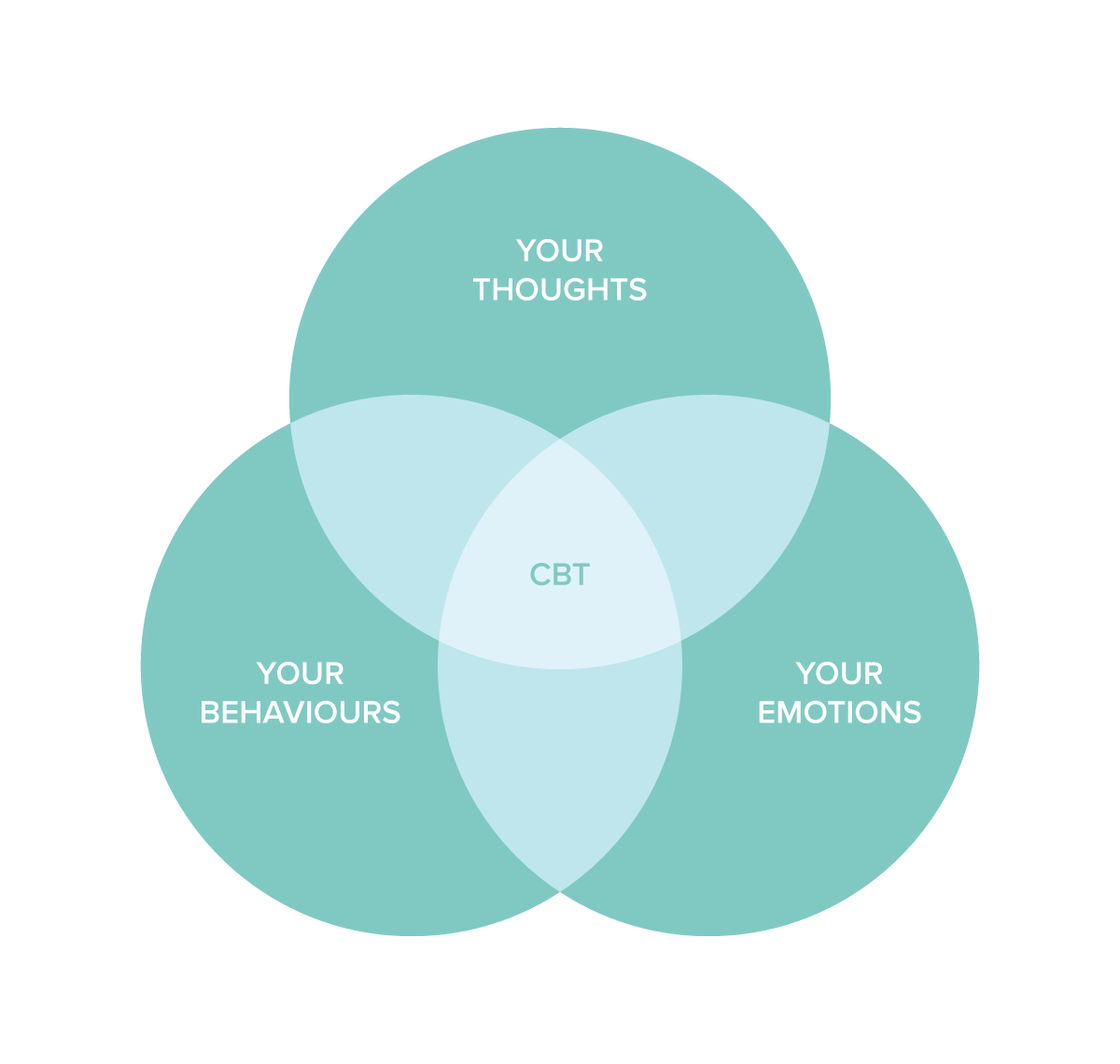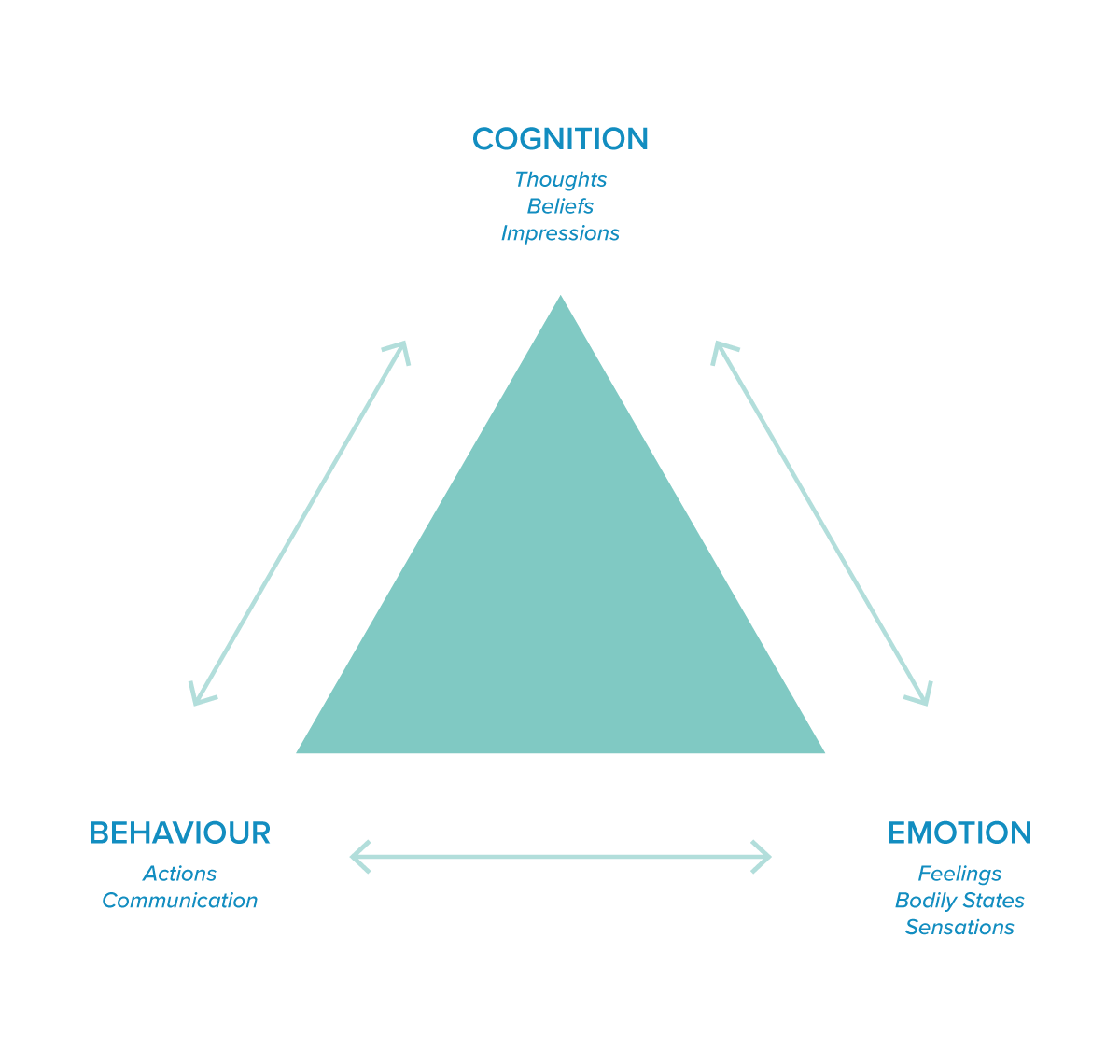Cognitive-behavioural therapy is a relatively short-term, focused psychotherapy for a wide range of mental health issues, including:
- Addiction
- Anger
- Anxiety
- Bulimia
- General Anxiety
- Depression
- Fears
- Health Anxiety
- Marital conflict
- Obsessive-compulsive disorder
- Panic Attacks
- Phobias
- Post natal depression
- Post-traumatic stress disorder (PTSD)
- Social Anxiety
CBT has an extensive history that has led to clinical trials and other forms of research showing evidence for its efficacy across various domains. For example, numerous studies have demonstrated that cognitive-behavioural therapy is as effective as medication for depression, anxiety, obsessions, and other fears. In addition, CBT teaches skills that help people to maintain their improvement after therapy has been completed.
What is CBT?
Cognitions (thoughts, beliefs, meaning-making, interpretation) strongly influence emotions (feelings, sensations, bodily states) and behaviour (actions, communication). Therefore, changing our thinking may help to change the way we feel. Likewise, changing our actions is often a powerful way of altering thoughts and feelings.
In CBT, we explore the relationship between thoughts, feelings and actions and examine how these influence the current situation.

In CBT, mental health problems are viewed as developing from regular functions. They are simply extreme versions of everyday states rather than disorders. This suggests that psychological problems can happen to anyone, rather than the person being an oddity. CBT focuses on what is happening in the present and what factors maintain the problem, rather than on your early childhood experiences. Everyone has issues, and to better solve big problems, it helps to explore how thoughts, feelings and actions are connected.
For example, imagine having a presentation at work or school. You think, “I’m going to fail”, “The audience will laugh at me and think I am incompetent”. Because of these thoughts, you begin to feel anxious and start worrying. You are so worried that you feel sick just thinking about the presentation. Finally, because of this uncomfortable state, you decide to call in sick to avoid presenting.
The thought and interpretations of the event (I’m going to fail, the audience will laugh at me and think I am incompetent) led to a feeling (worry), which led to an avoidant action (calling in sick to avoid presenting). Could this have been avoided if you had challenged that initial thought pattern?

In therapy, we collaboratively explore these connections and target specific parts when needed. As a result, you will learn to recognize, challenge and change unhelpful patterns to better cope with challenging situations and improve your quality of life.
What are therapy sessions like?
CBT is a structured therapy meaning that you and your therapist will collaboratively set an agenda for each meeting. For example, the agenda might include a review of your experience or accomplishment in the previous session, homework, or a focus on one or two current problems.
Together you will also develop a therapy plan, comprising frequency of sessions, goal setting, problem-solving and skill acquisition needed to change how you think, behave, and communicate.
Additionally, homework is an essential part of CBT as you practice and apply what you have learned in therapy in the real world. Homework assignments may include mood tracking, scheduling activities, challenging negative thoughts, or communicating more assertively. Research demonstrates that patients who complete homework assignments improve faster and stay better for longer. The aim is to support you in making lifestyle changes that help you live a fulfilling life after the therapy has been completed.






